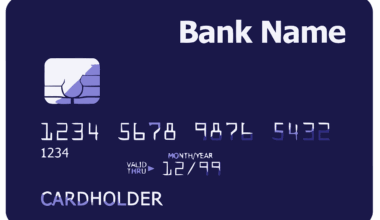How to Handle Conflict in Program Management Teams
Conflict is an inevitable part of program management, as varied perspectives and interests manifest within teams. Effectively addressing and managing conflict is crucial to maintaining a collaborative and productive environment. Leaders must recognize signs of conflict early on, including shifts in communication, reluctance to participate in discussions, or visible frustration amongst team members. Identifying the root cause of conflict is equally essential; it often stems from misunderstandings, competing priorities, or differing communication styles. By fostering open dialogue, program managers can facilitate a culture where team members feel comfortable expressing concerns or grievances. Encouraging team members to voice their opinions leads to greater ownership of solutions and promotes collective problem-solving. Additionally, it is vital to separate personal issues from professional disagreements, focusing on the problem at hand rather than personal attributes. This approach helps create a safe space for discussion. Utilizing conflict resolution strategies, such as mediation, can guide teams toward productive outcomes. Ultimately, effectively managing conflict not only enhances team dynamics but also drives project success and ensures the overall objectives of the program are met, paving the way for collaborative growth.
When navigating conflict in program management, it is crucial to employ tailored strategies that align with the unique dynamics of each team. Conducting a thorough assessment of the situation can help program managers identify the underlying causes of the conflict. This may require gathering detailed feedback from team members to understand their perspectives fully. Active listening is paramount in this process, as it demonstrates empathy and willingness to resolve issues collaboratively. Moreover, program managers need to promote transparency by sharing relevant information that may have led to misunderstandings. Establishing common goals can provide a unifying force to refocus team efforts on shared objectives. Team-building exercises can further strengthen relationships, fostering resilience during challenging times. Setting clear expectations about communication and collaboration can mitigate future conflicts, minimizing misunderstandings. Regular check-ins help ensure that team members feel supported and can voice concerns before they escalate. Implementing conflict resolution training can equip team members with valuable tools to handle disagreements effectively. A positive conflict management culture not only improves team morale but also enhances overall productivity, ensuring that program milestones are achieved efficiently and successfully.
Building a Conflict-Responsive Team Culture
Creating a conflict-responsive team culture is essential for effective program management. This requires fostering an environment where team members feel comfortable approaching disagreements constructively. Start by establishing ground rules for communication , clearly outlining expectations for respectful interaction during discussions. Team members should be encouraged to express differing opinions while acknowledging the value of diverse perspectives. Recognizing and celebrating the team’s collective achievements can also build trust and solidarity. Team leaders should be proactive in addressing conflicts head-on rather than allowing issues to fester, which can escalate tensions. Encouraging collaborative problem-solving and empowering team members to negotiate solutions promotes a sense of ownership over the process. Additionally, implementing feedback mechanisms—such as regular surveys or suggestion boxes—can allow team members to voice their thoughts on existing dynamics safely. Management can utilize this feedback to adapt practices and respond to emerging concerns more effectively. Furthermore, modeling positive conflict resolution behaviors as a leader sets a powerful example for the team to follow. Training sessions in communication skills, negotiation, and emotional intelligence can further strengthen the team’s ability to navigate conflicts successfully and cohesively.
Another vital aspect of conflict management in program teams involves addressing emotional intelligence in the workplace. Emotional intelligence encompasses the ability to recognize and understand one’s own emotions and those of others. By promoting awareness of emotional responses, program managers can help team members manage their emotions during conflicts. This starts with training on self-regulation strategies, enabling individuals to remain calm and composed when disagreements arise. Additionally, understanding nonverbal cues, such as body language, enhances team members’ ability to empathize during discussions. With these tools, program teams can create a supportive atmosphere that encourages open and honest exchanges. Encouraging team members to practice patience and mindfulness during conflicts can promote constructive dialogue. This entails taking a moment to think before reacting, ensuring that responses are thoughtful rather than impulsive. Cultivating a culture of empathy and understanding can lead to quicker resolutions and can prevent conflicts from disrupting project timelines. Acknowledging wins, no matter how small, reinforces the spirit of collaboration. When team members feel emotionally supported and understood, conflicts can serve as opportunities for personal and professional development, ultimately strengthening the team’s foundation.
Leveraging Conflict for Innovation
Interestingly, conflict can serve as a catalyst for innovation in program management teams. Disagreements often lead to deeper discussions that reveal hidden insights and alternative viewpoints. When effectively managed, conflict provides an opportunity for creative problem-solving and the generation of new ideas. Encouraging constructive debates helps teams challenge the status quo, ultimately leading to improved strategies and processes. Program managers can cultivate a culture of innovation by framing conflicts as opportunities for growth rather than obstacles. This shift in perspective encourages team members to view challenges positively and engage in brainstorming sessions that stimulate creativity. By prioritizing collaborative exploration, team members can combine their unique skills and experiences to address issues dynamically. Celebrating successful experiments and learnings from failed attempts reinforces the idea that innovation often stems from risk-taking and creative thinking. It becomes essential for program managers to actively recognize and reward innovative contributions during conflicts. These practices motivate team members to continue pushing boundaries and deliver exceptional results. Thus, harnessing conflict’s potential can gradually transform program teams into resilient units capable of adapting and thriving amid challenges and change.
Effective feedback mechanisms enhance conflict management in program management teams, promoting open communication. Timely feedback helps team members recognize performance gaps and areas needing improvement without allowing issues to escalate. Implementing 360-degree feedback systems enables team members to assess not only their performance but also that of their colleagues, enhancing overall accountability. This comprehensive approach encourages resilience and supports positive growth mindsets within the team. Constructive criticism should focus on behavior rather than personal attributes to ensure that feedback remains objective and focused on outcomes. Program managers can facilitate feedback sessions by creating a safe space for discussions, promoting candid exchanges. Recognizing the importance of verbal and non-verbal communication during feedback conversations enhances effectiveness. Moreover, addressing conflicts promptly after arising ensures that issues are resolved swiftly, reducing the likelihood of future disagreements. Additionally, establishing regular check-in meetings allows for addressing concerns collaboratively and reconciling differences before they develop into significant conflicts. Encouraging peer support and mentorship relationships further enhances individuals’ confidence in addressing issues proactively. Feedback is not merely a reactive tool but a proactive strategy to improve team dynamics and mitigate conflicts, ensuring that projects move forward successfully.
Sustaining Conflict Resolution Strategies
Selecting the right conflict resolution strategies is essential in program management as they provide structured approaches to address disputes effectively. Utilizing techniques such as negotiation, collaboration, and compromise can foster a cooperative environment. Understanding team dynamics allows conflict resolution strategies to be tailored accordingly, ensuring appropriateness based on the circumstances. Training team members in various conflict resolution styles can provide them with the tools needed to approach disagreements. Active listening, for example, is a key skill, enabling team members to recognize others’ viewpoints while expressing their own. Utilizing role-playing scenarios can help team members practice conflict resolution strategies in a safe environment. Additionally, performance evaluations can include metrics on conflict management effectiveness, promoting accountability. After resolving conflicts, it is essential to debrief and reflect on the process to identify lessons learned. These reflections can lead to adjustments in strategies and approaches, fostering continuous improvement in conflict management practices. Regularly revising conflict resolution strategies helps the team stay adaptable, ensuring resilience in the face of new challenges. Every successful resolution can serve as a stepping stone to a more refined and efficient approach in managing conflicts in future program endeavors.


